The Feywild: The Truce of Noon
The Truce of Noon represents the unofficial middlegrounds between the Seelie & Unseelie Courts of the feywild. For creatures that are indeterminate of their loyalty to the Court of Dawn, or the Court of Dusk, there exists the Noon Truce, a collection of neutral-minded, albeit, wild individuals whose only goal is to embody the true nature of the feywild: unpredictability.
In addition, this middleground group remains loyal to no-one in the feywild, but is headed by less of a leader, and more of a representative of this ever-changing force: Ricch Padicus, the Fey Lord of Luck & Debauchery.
Representation of Noon
Being unloyal to both the Seelie & the Unseelie courts - yet peaceful to both - has earned the Truce of Noon a form of begrudging respect from both courts of Dawn & Dusk.
The Truce of Noon has not gone against the wishes of either court - unless they are directly involved in particular affairs - and have only enacted the ideals that the Feywild is constantly changing; therefore, more fey ought to embody it's mercurial nature by not having strict adherence to a singular court and it's goals or rules.
Their belief is centered around the idea that Fey should help as much as they harm - and when not doing so - act as a form of guardian for the Feywild & it's inhabitants.
Luck & Debauchery
What better way to represent the true nature of the Feywild by becoming the idealization of the two most important facets of the land? Luck & Debauchery are the realms of Ricch Padicus.
-
Luck - The idea that fate plays a bigger role in your life than you do, and that all you do is up to chance.
-
Debauchery - The ability to celebrate life in every aspect, regardless of it's failures or successes. The fact that you lose allows you to learn, and that when you win, you gain what you didn't have.
Having power over these two aspects of the Feywild allows Ricch to manipulate fate in his favor, and lets him tiptoe the line between the Seelie & Unseelie with great ease.
Ricch has been known to help or harm upon the literal flip of a coin, and thus, relying upon him for help is likely to either end in your favor, or your doom.
The Misty Grove
The Only portion of the Feywild technically considered "neutral ground" is the Misty Grove - an area of unfathomably old trees located in the middle between the two fey courts, constantly surrounded by silvery mist and under the light of a noon-locked light.
In the midst of this very large grove is a Tavern, frequented often by both outsiders and natives to the plane. It functions as Ricch's base of operations and an area of truces & celebrations alike.
Many newcomers to the Feywild will stumble across the Grove and it's Tavern: "The Swaying Doorstop" and are offered a place of lodging and rest before trekking off once more.
"The Swaying Doorstop"
A Cozy Tavern that resembles a large 4-story Inn, this building seems unreasonably old, and it's ancient wood appears warped and twisted into the shape of the building rather than cut.
The trees of the Misty Grove appear to be exactly similar to the ones used in the construction of the Tavern, and upon entering the tavern, an aura of jovial peace sweeps over it's occupants.
The Tavern is, of course, not strictly bound to the Feywild - although it is based there - it has the capability to appear on multiple planes of existence, seemingly all at the same time.
Rumors abound that the Misty Grove itself resides upon a demiplane that is centered on the fabled tree of life: Yggdrasil - which has roots and branches in every plane and every world. Indeed, even the trees found in the grove and the wood of the tavern seem incomprehensibly old and foreign to every plane it visits.

The Lord & His Denizens
Ricch is particularly fond of many a variety of creatures and individuals, and allows any and all into the confines of his Tavern to partake in it's joyous and raucous effects - but only if they remain peaceful and (mostly) neutral within his realm, otherwise they are either forcibly ejected from the area until their mood changes, or Ricch takes direct action himself. Barfights are still welcome within reason, but if it becomes too rowdy, Ricch will be the one to stop it.
There are a few particular creatures that he allows to stay within his Tavern for an indiscriminate amount of time, as he finds their presence particularly humorous, helpful, or enjoyable.
Amongst the "natives" of his tavern, he particularly enjoys the company of Leprechauns - who look to him as their leader and spokesperson.
Other creatures include, but are not limited to:
- Alehouse Drakes
- Barflys
- Children of Yggdrasil
- Clerics of the Brew
- Clurichauns
- Drunkards
- Green Knights of the Woods
- Hoard Golems
- Keg Golems
- Leprechauns
- Rum Goblins
Each of these creatures are detailed below, as well as Ricch Padicus himself at the end of the list. These creatures will always loyally abide the orders of Ricch, even to the point of jumping forth to defend him and his domain.
Some of these creatures can be found in the "Tome of Beasts" or the "Creature Codex" Homebrew Books

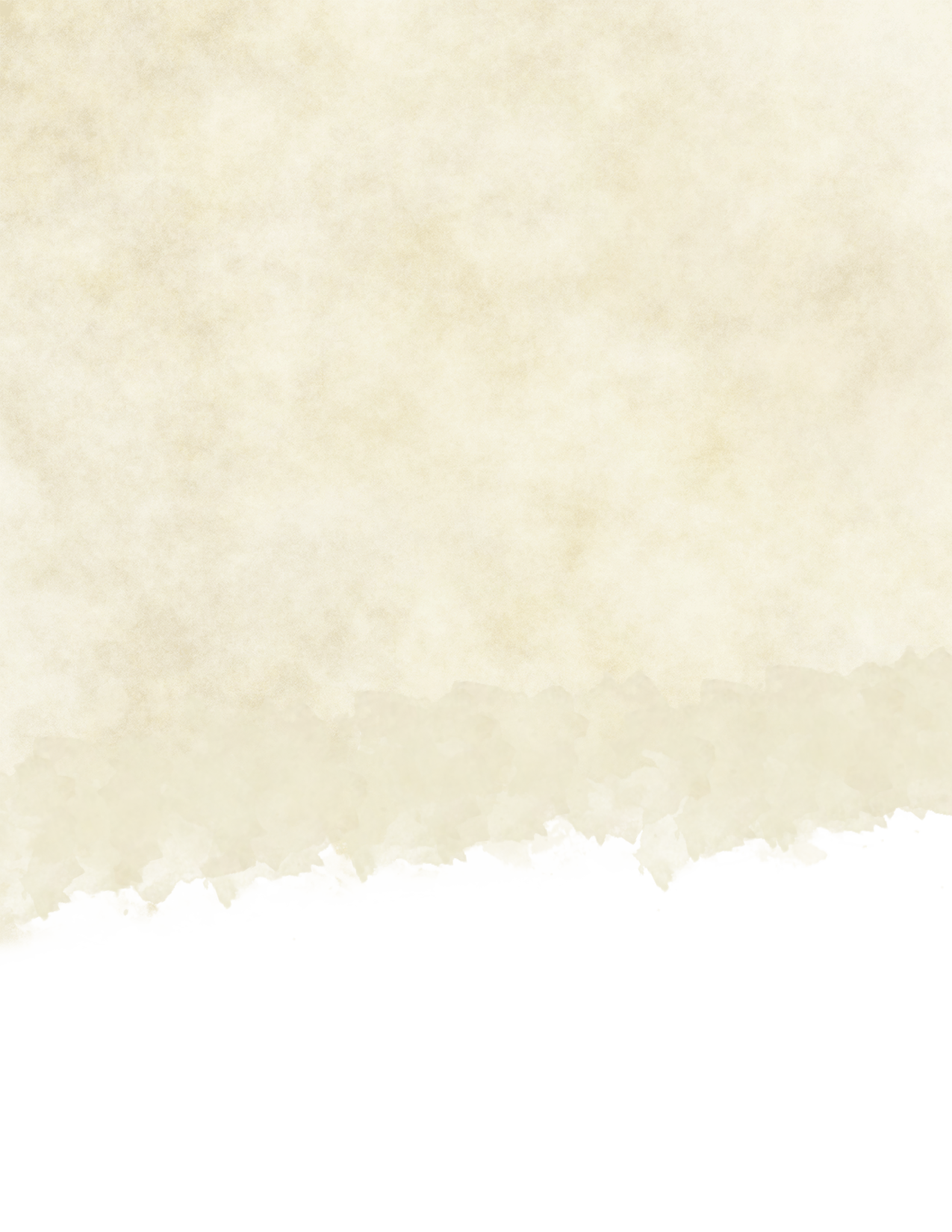

Drunkenness & Barfights
Because of the nature of Ricch's tavern, the occupants inside will almost always be either drunk or confrontational - or more than likely both.
For this reason, the page directly after this contains both "Levels of Drunkenness", and rules for barfighting - both of which are essential for the absolute understanding of the creatures to follow.

Alehouse drake
This plump little creature reclines with a dazed look in its eyes and the suggestion of a grin on its fanged jaws.
Scaled Barflies. Alehouse drakes squat in busy bars, rowdy taverns, and bustling inns. A bane or savior to every bartender and innkeeper, alehouse drakes enjoy pushing patrons’ emotions, driving crowds to ecstatic cheers or bloody bar fights.
Alehouse drakes make their homes in cities and towns, though older drakes settle down in roadside coaching inns. In the former situations, they are often troublemakers or pranksters, but in the latter circumstances, they usually befriend the proprietor and help manage flared tempers and weepy drinkers in return for living space and a generous tab.
Relentless Gossips. Alehouse drakes gossip endlessly. Perched in hiding places throughout busy taverns, they overhear many stories, and often trade in information, making them good sources for news about town. More devious and ill-mannered alehouse drakes resort to blackmail, but usually only to secure a comfortable spot in their chosen tavern.
Family Heirlooms. Alehouse drakes are one to two feet long on average and weigh about eighteen lb. with a plump belly. Their scales are deep amber with cream or white highlights, and they possess glittering, light-colored eyes. The oldest recorded alehouse drake lived just past 400 years—some are quite beloved by innkeeping families, and treated bit like family heirlooms.
Alehouse Drake
Tiny Dragon, Chaotic Neutral
- Armor Class 13
- Hit Points 65 (10d4 + 40)
- Speed 40 ft., fly 80 ft.
STR DEX CON INT WIS CHA 7 (-2) 16 (+3) 19 (+4) 11 (+0) 12 (+1) 16 (+3)
- Saving Throws Dex +5
- Skills Deception +5, Insight +3, Persuasion +5
- Condition Immunities paralyzed, unconscious
- Senses darkvision 60 ft., passive Perception 11
- Languages Common, Draconic
- Challenge 1/2 (100 XP)
Innate Spellcasting. The drake’s innate casting ability is Charisma (spell save DC 13, +5 to hit with spell attacks). It can innately cast the following spells, requiring no material components:
At will: friends, vicious mockery
5/day: calm emotions, dissonant whispers, ray of sickness, hideous laughter
3/day: confusion, invisibility
Forgetful Spellcasting. When an alehouse drake targets a creature with a mind-affecting spell, the creature must succeed on a DC 15 Wisdom save or immediately forget the source of the spell.
Actions
Bite. Melee Weapon Attack: +5 to hit, reach 5 ft., one target. Hit: 6 (1d6 + 3) piercing damage.
Claw. Melee Weapon Attack: +5 to hit, reach 5 ft., one target. Hit: 8 (2d4 + 3) slashing damage.
Bar Breath (Recharge 5-6) An alehouse drake can burp a cloud of intoxicating gas in a 15-foot cone. A creature caught in the cloud becomes poisoned for 1 minute and must make a successful DC 14 Constitution saving throw or become stunned for 1d6 rounds.
Discombobulating Touch. An alehouse drake can make a touch attack that grants its target +3 to Dexterity-based skill checks and melee attacks but also induces confusion as per the spell. This effect lasts for 1d4 rounds. A successful DC 13 Charisma saving throw negates this effect.

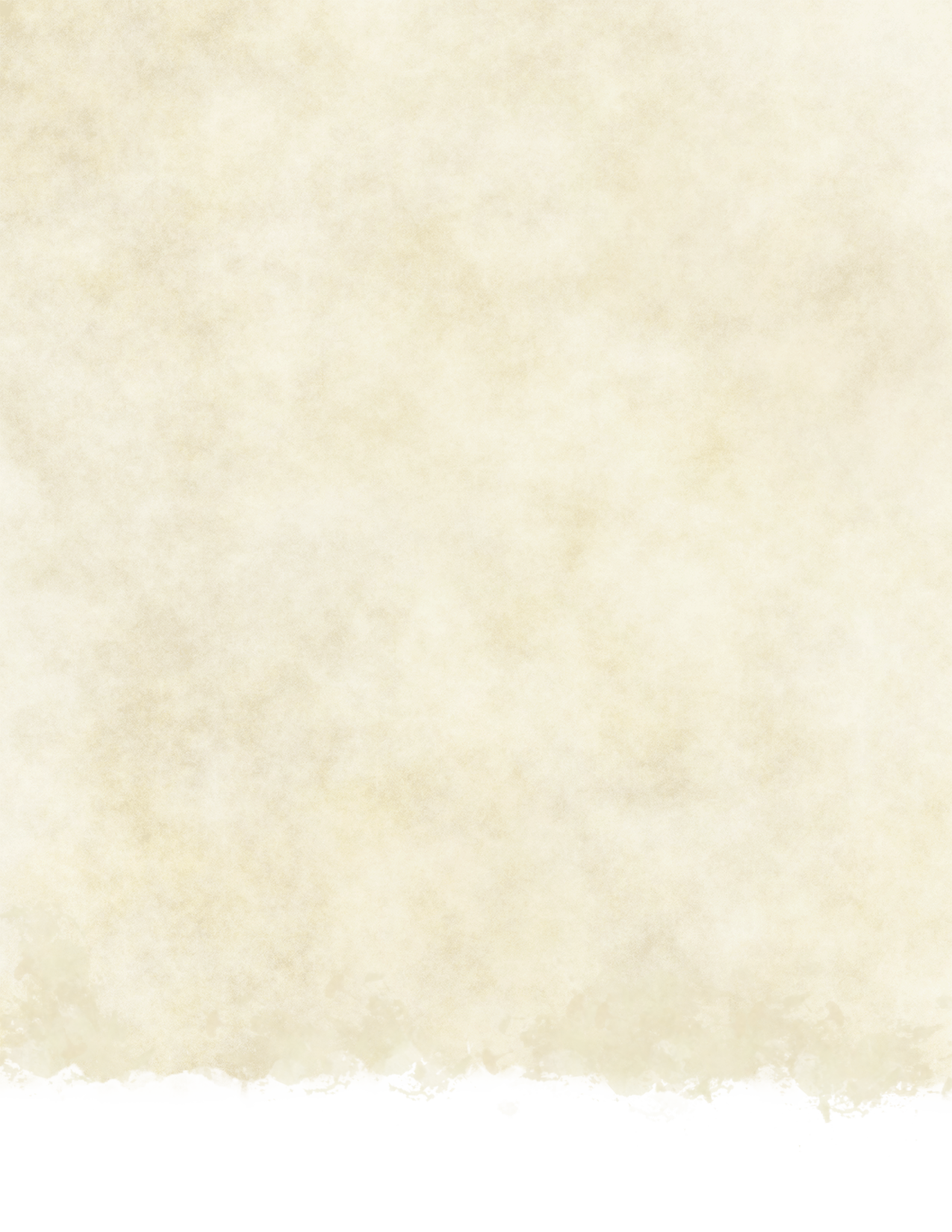
Barfly
Monstrous insects adapted to drink the contents of naturally fermented fruit, barflies will happily drain a cask of wine or a bar-goer's blood.
Clumsy, yet Motivated. Barflies might look bumbling (they are), but when properly motivated, they're among the most aggressive insects in nature. With but a hint of alcohol in the air, a barfly becomes a dart, flying proboscis-first with remarkable speed toward its target. This haste is mandated in nature by barfly competition, so when one barfly bullets towards its target, dozens more will be in hot pursuit.
Nutritional Booze. As barflies depend utterly on natural alcohol for sustenance, their metabolism goes into overdrive when confronted with the refined stuff. Even as they grow fat on wine or beer, their bodies start rapidly mending wounds, reinforcing their exoskeletons, and laying eggs. Thus an infestation of barflies in a wine cellar, distillery, or brewhouse can rapidly spin out of control, producing entire swarms of the flies that drain every drop of booze in the building before venturing outward, desperate for even more sustenance.
Barfly
Tiny Monstrosity, unaligned
- Armor Class 14 (natural armor)
- Hit Points 7 (3d4)
- Speed 10 ft., fly 40 ft.
STR DEX CON INT WIS CHA 4 (-3) 16 (+3) 11 (+0) 2 (-4) 8 (-1) 6 (-2)
- Senses darkvision 60 ft, passive perception 9
- Languages ---
- Challenge 1/8 (25 XP)
Booze Sense. The barfly knows the exact location of any alcohol within 100 feet of it, including creatures that have a level of drunkenness.
Thirsty Rage. The barfly has advantage on melee attack rolls against any creature that has a level of drunkenness.
Actions
Booze Drain. Melee Weapon Attack: +5 to hit, reach 5 ft., one creature or object. Hit: 5 (1d4 + 3) piercing damage, and the barfly attaches to the target. While attached, the barfly doesn't attack. Instead, at the start of each of the barfly's turns, the target loses 5 (1d4 +3) hit points due to blood loss. If the target is an object containing alcohol or a creature with at least one level of drunkenness, the barfly gains 1d4 hit points. The barfly detaches itself when the target dies or is free of alcohol. A creature, including the target, can use its action to detach the barfly.
Barfly Swarm
Small swarm of tiny Monstrosities, unaligned
- Armor Class 14 (natural armor)
- Hit Points 29 (6d6 + 8)
- Speed 10 ft., fly 40 ft.
STR DEX CON INT WIS CHA 7 (-2) 16 (+3) 13 (+1) 2 (-4) 8 (-1) 6 (-2)
- Damage Resistances bludgeoning, piercing, slashing
- Condition Immunities charmed, frightened, grappled, paralyzed, petrified, prone, restrained, stunned
- Senses darkvision 60 ft, passive perception 9
- Languages ---
- Challenge 1 (100 XP)
Booze Sense. The barfly knows the exact location of any alcohol within 100 feet of it, including creatures that have a level of drunkenness.
Thirsty Rage. The barfly has advantage on melee attack rolls against any creature that has a level of drunkenness.
Swarm. The swarm can occupy another creature's space and vice versa, and the swarm can move through any opening large enough for a Tiny barfly. The swarm can't regain hit points or gain temporary hit points, except through the use of its booze drain action.
Actions
Booze Drain. Melee Weapon Attack: +5 to hit, reach 0 ft., one creature or object. Hit: 10 (4d4) piercing damage or (2d4) if the swarm has half its hit points or fewer. If the target is an object containing alcohol or a creature with at least one level of drunkenness, the swarm regains 4d4 hit points.

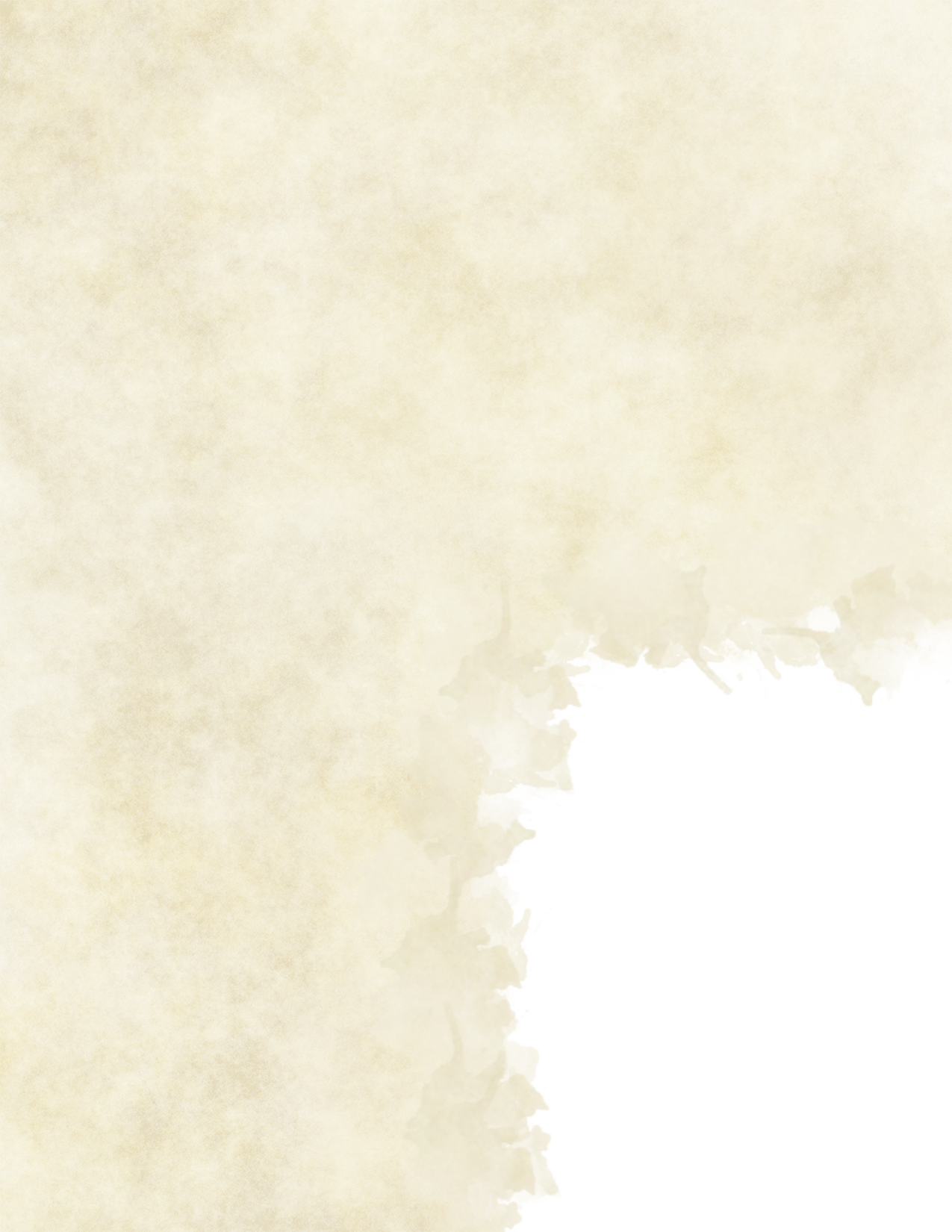

Child of Yggdrasil
Long ago, a ratatosk found some dragon eggs, smeared them with the sap of the World Tree, and rolled them into a safe, warm place for later devouring. The eggs hatched a race of hunters that have plagued the ratatosk ever since.
The children of Yggdrasil are sentient parts of the World Tree, saplings with long “hair” of ash leaves and radial symmetry. A child of Yggdrasil’s four legs are rootlike and often planted in the ground. Its eyes sit at the center of flowers, and its “hands” resemble tentacles, though with twiggy branches rather than fingers.
Cliff-Lovers. The children of Yggdrasil climb vertical cliffs and steep slopes in search of warmth and sunlight, roosting in these places until thirst drives them to climb down to a stream or pond. They often devour bird eggs on cliffs and can catch unwary climbers by surprise.
Whispering Serpent Egg Horrors. Legends say the children of Yggdrasil came from a dragon’s egg laid on the World Tree, which hatched a huge mass of serpents, each of them infused with the sap and cold wisdom of the World Tree itself. These larval forms of the children of Yggdrasil resemble a ball of serpents intertwined with leaves, and they feed on squirrels and mice until they grow large enough to lure bigger prey.
Hissing Wind. The snakelike tongues and forked leaves of a child of Yggdrasil are always in motion; they are never entirely silent. In groups of three or more, the sound of their hissing resembles an ill, disquieting wind.
Grove Gatherings. At night they come down from cliffs and hills and gather near streams to hiss, whisper, mate, and devour sacrifices left to them by druids or giants. At times like this, up to a dozen children of Yggdrasil may gather in one place, fusing their limbs and branches until shortly before dawn, when they go their separate ways.
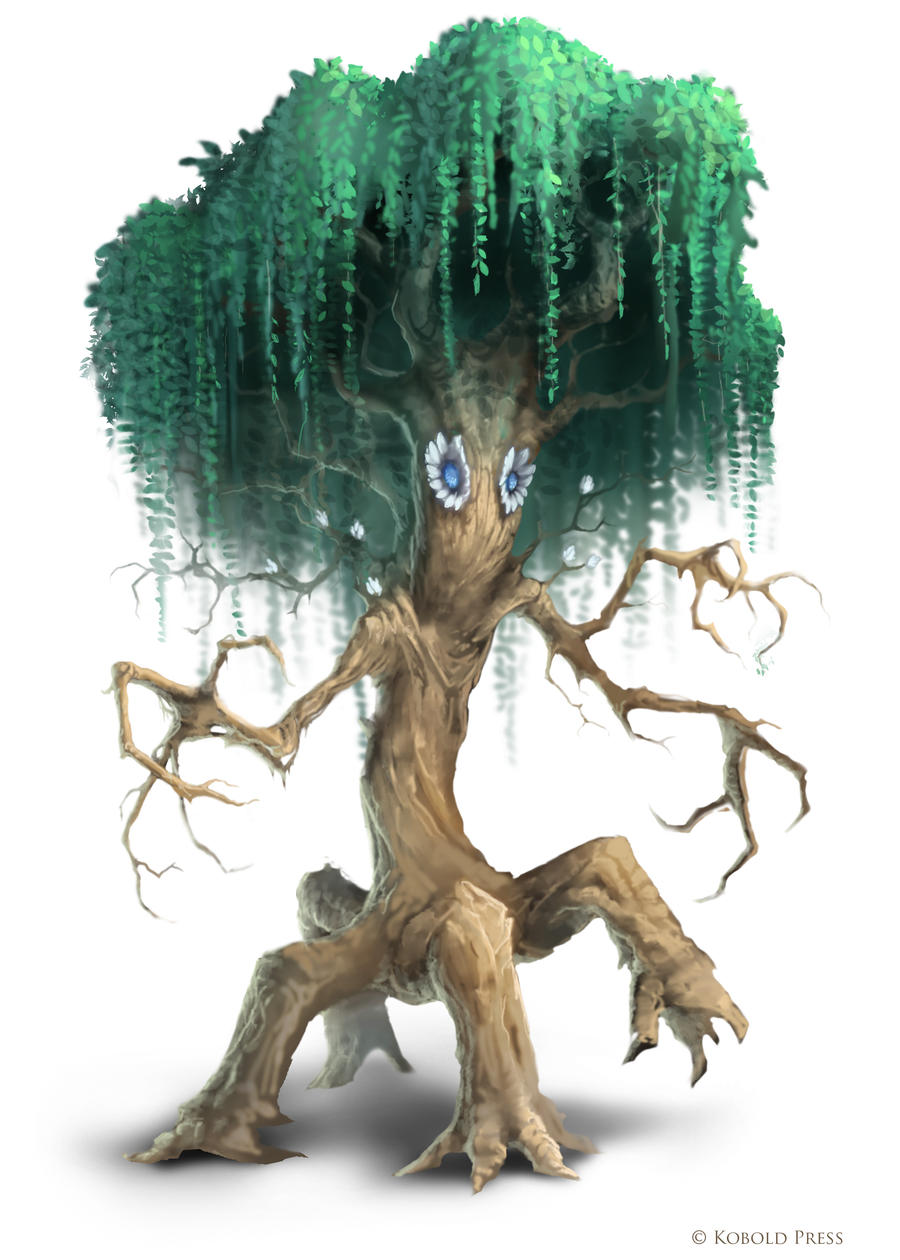

Child of Yggdrasil
Large aberration, neutral
- Armor Class 14 (natural armor)
- Hit Points 112 (15d10 + 30)
- Speed 20 ft., climb 20ft.
STR DEX CON INT WIS CHA 16(+3) 10(+0) 14(+2) 10(+0) 18(+4) 8(-1)
- Skills Perception +7, Stealth +3
- Damage Vulnerabilities fire
- Damage Immunities acid, cold; bludgeoning from nonmagical attacks
- Condition Immunities prone
- Senses darkvision 60 ft., passive Perception 17
- Languages Common, Sylvan, Druidic, Giant, Primordial
- Challenge 6 (2,300 XP)
Acid Touch. As an action, the child of Yggdrasil destroys one nonmagical object that isn’t being worn or carried, such as a rope, plank, candlestick, or even an entire bronze cauldron.
Forest Camouflage. The child of Yggdrasil has advantage on Dexterity (Stealth) checks made to hide in forest terrain.
Keen Smell. The child of Yggdrasil has advantage on Wisdom (Perception) checks that rely on smell.
Actions
Multiattack. The child of yggdrasil makes three claw attacks.
Claw. Melee Weapon Attack. +6 to hit, reach 10 ft., one target. Hit: 7 (1d8 + 3) slashing damage plus 7 (2d6) acid damage.
Sap Blast (Recharge 5-6). The child of yggdrasil shoots a jet of liquid sap in a 30-foot line that is 5 feet wide. Each creature in that line must make a DC 15 Dexterity saving throw. On a failure, a target takes 9 (3d8) acid damage, and is adhered to the ground, reducing its speed to 0 ft. On a success, a target takes half the damage and isn’t adhered. An adhered creature can repeat the saving throw at the end of each of its turns, ending the effect on itself on a success.
Cleric of the Brew
Mortals and Gods alike do enjoy their spirits, and sometimes there's a member of mankind who worship said 'spirits'.
Spirit of the Spirits. Humanity loves their drinks, so it is no surprise that many of them revere the gods of alcohol, and entities of revelry. Clerics of the brew are talented brewers & concoctionists, creating delicious full-flavored mundane ales, but they can also channel the power of their gods to make special “Holy” brews to aid their followers. They are capable fighters and are often found in the front ranks of hearty war bands, swinging their weapons and inspiring their comrades with heavy spirits. (These clerics use the "Feast Domain.")
Cleric of the Brew
Medium humanoid (any), any alignment
- Armor Class 18 (chain mail, shield)
- Hit Points 104 (16d8 +32)
- Speed 30 ft.
STR DEX CON INT WIS CHA 16 (+3) 10 (+0) 15 (+2) 11 (+0) 18 (+4) 13 (+1)
- Saving Throws Con +5, Wis +7
- Skills Medicine +7, Persuasion +4, Religion +3
- Damage Resistances poison
- Senses darkvision 60 ft., passive Perception 14
- Languages Common, (+2 others)
- Challenge 5 (1,800 XP)
Master Brewer. The cleric has a +7 bonus on ability checks to brew drinks, has advantage on saving throws against poison, and can’t be intoxicated unless it chooses to be.
Spellcasting. The cleric of the brew is an 8th-level spellcaster. Its spellcasting ability is Wisdom (spell save DC 15, +7 to hit with spell attacks). It has the following cleric spells prepared:
Cantrips (at will): guidance, light, mending, sacred flame
1st level (4 slots): cure wounds, healing word, heroism, purify food and drink
2nd level (3 slots): hold person, prayer of healing, spiritual weapon
3rd level (3 slots): aura of vitality, dispel magic, spirit guardians
4th level (2 slots): confusion, freedom of movement
Actions
Multiattack. The cleric can use its Intoxicating Burp. It then makes two divine strike attacks.
Divine Strike. Melee Weapon Attack: +6 to hit, reach 5 ft., one target. Hit: 6 (1d6 + 3) bludgeoning damage plus 9 (2d8) radiant damage.
Divine Brew. The cleric drinks, or administers to an ally, one of the beer goddess’ holy ales. For 1 minute, the drinker is immune to being frightened, gains 7 (2d6) temporary hp, and has advantage on ability checks based on Charisma. The creature can’t benefit from Blessed Brew again until it finishes a short or long rest.
Intoxicating Burp. The cleric of the brew belches revoltingly in the face of a single creature within 5 feet. The target must succeed on a DC 15 Constitution saving throw or gain a level of drunkenness, and become poisoned for 1 minute. If a creature’s saving throw is successful or the effect ends for it, the creature is immune to the cleric’s Intoxicating Burp for the next 24 hours.
Boot and Rally (Recharges after a Short or Long Rest). Allies within 30 feet of the cleric who are frightened, paralyzed, poisoned, or stunned by an effect that allows repeated saving throws (such as a dragon’s Frightful Presence) have advantage on the next saving throw. A creature that succeeds on the saving throw regains 7 (2d6) hp.
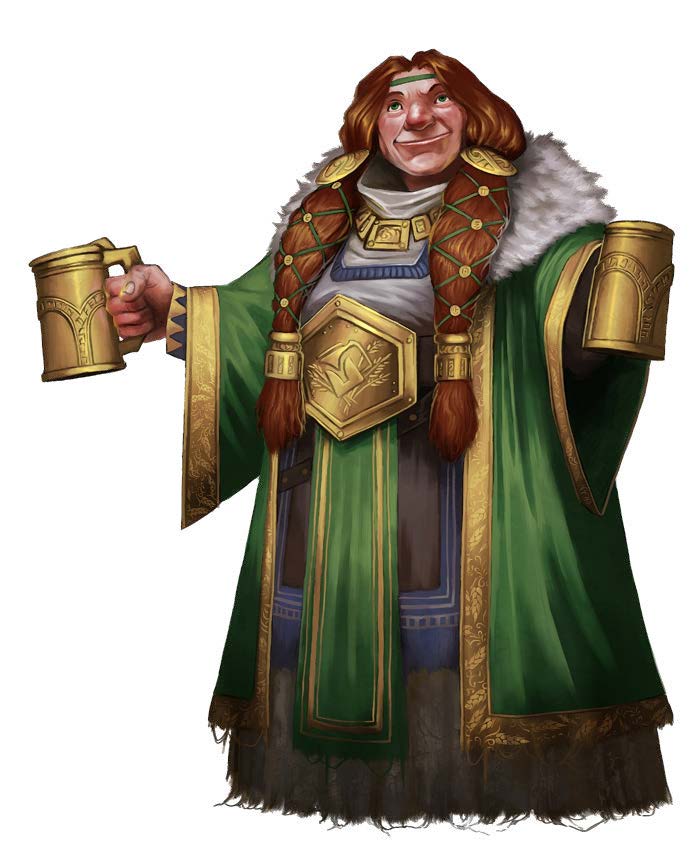

Clurichaun
Around a corner in the wine cellar stumbles a surly, two-foot tall man carrying an open bottle of wine. He has a bushy beard and wears a rumpled, red overcoat over a dirty white shirt and kneelength red trousers with blue stockings and silver-buckled shoes. A cap made from leaves stitched together with gold thread slouches atop his head, and he reeks of stale beer and wine.
Drunks in the Cellar. Clurichauns - also known as "lesser leprechauns" - are mean-spirited, alcohol-loving fey that plague butteries and wine cellars. These drunken fey were once leprechauns, but they long ago forsook a life of toil for one of solitary debauchery. Now they spend every night drinking, warbling off-key, and tormenting their hapless hosts with cruel pranks.
However, if the clurichaun’s host keeps him or her well supplied with a favorite libation and otherwise leaves him or her alone, the clurichaun will protect their wine cellars from thieves, drunkards, or worse—becoming quite vigorous when they feel the security of the cellars is threatened in any way. They have a particular hatred for rum gremlins and for other clurichauns.
Contest Evictions. Most people can’t tolerate or afford a clurichaun’s presence for long. Unfortunately, attempts to drive them off usually result in the spiteful clurichaun going on a destructive rampage and them spoiling any remaining wine. The best way to evict a clurichaun is to challenge him or her to a drinking contest. A clurichaun can’t abide losing to a mortal and will slink away in shame, never to be seen again, if that happens. This is a risky option, however, because despite their size, clurichauns can drink prodigiously with little ill effect.
Small Brawlers. While clurichauns aren’t adverse to an old-fashioned tavern brawl, they rely mainly on their magic to protect themselves. Creatures under a clurichaun’s spell feel and act as if they were intoxicated, complete with hangovers the next morning!
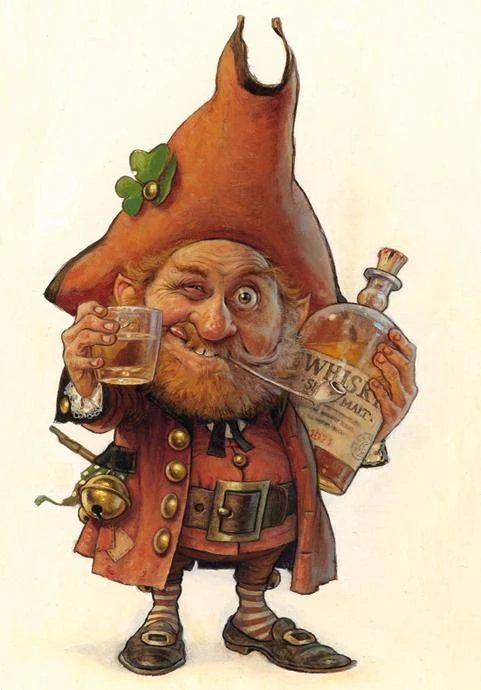

Clurichaun
Tiny fey, chaotic neutral
- Armor Class 14
- Hit Points 22 (4d4 + 12)
- Speed 30 ft.
STR DEX CON INT WIS CHA 13 (+1) 12 (+1) 16 (+3) 10 (+0) 8 (-1) 16 (+3)
- Saving Throws Con +5
- Skills Perception +1, Stealth +3
- Condition Immunities frightened, poisoned
- Senses darkvision 60ft., passive Perception 11
- Languages Common, Elvish, Sylvan
- Challenge 1/4 (50 XP)
Clurichaun’s Luck. Clurichauns add both their Dexterity and Charisma modifiers to their Armor Class.
Innate Spellcasting. The clurichaun’s innate spellcasting ability is Charisma (spell save DC 13). The clurichaun can cast the following spells, requiring only alcohol as a component.
At will: friends, mending, minor illusion, purify food and drink, vicious mockery
1/day each: blur, calm emotions, heroism, sleep, suggestion
Magic Resistance. The clurichaun has advantage on saving throws against spells and other magical effects.
Actions
Unarmed Strike. Melee Weapon Attack: +3 to hit, reach 5 ft., one creature. Hit: 2 (1 + 1) bludgeoning damage
Improvised Weapon. Melee or Ranged Weapon Attack: +3 to hit, reach 5 ft. or range 20/60 ft., one creature. Hit: 3 (1d4 + 1) bludgeoning, piercing, or slashing damage, depending on weapon.
Intoxicating Hit (Recharge 5-6). As a bonus action, when the Clurichaun hits a creature with an Unarmed strike, it can imbue the strike with an intoxicating energy, giving the hit creature a level of Drunkenness.
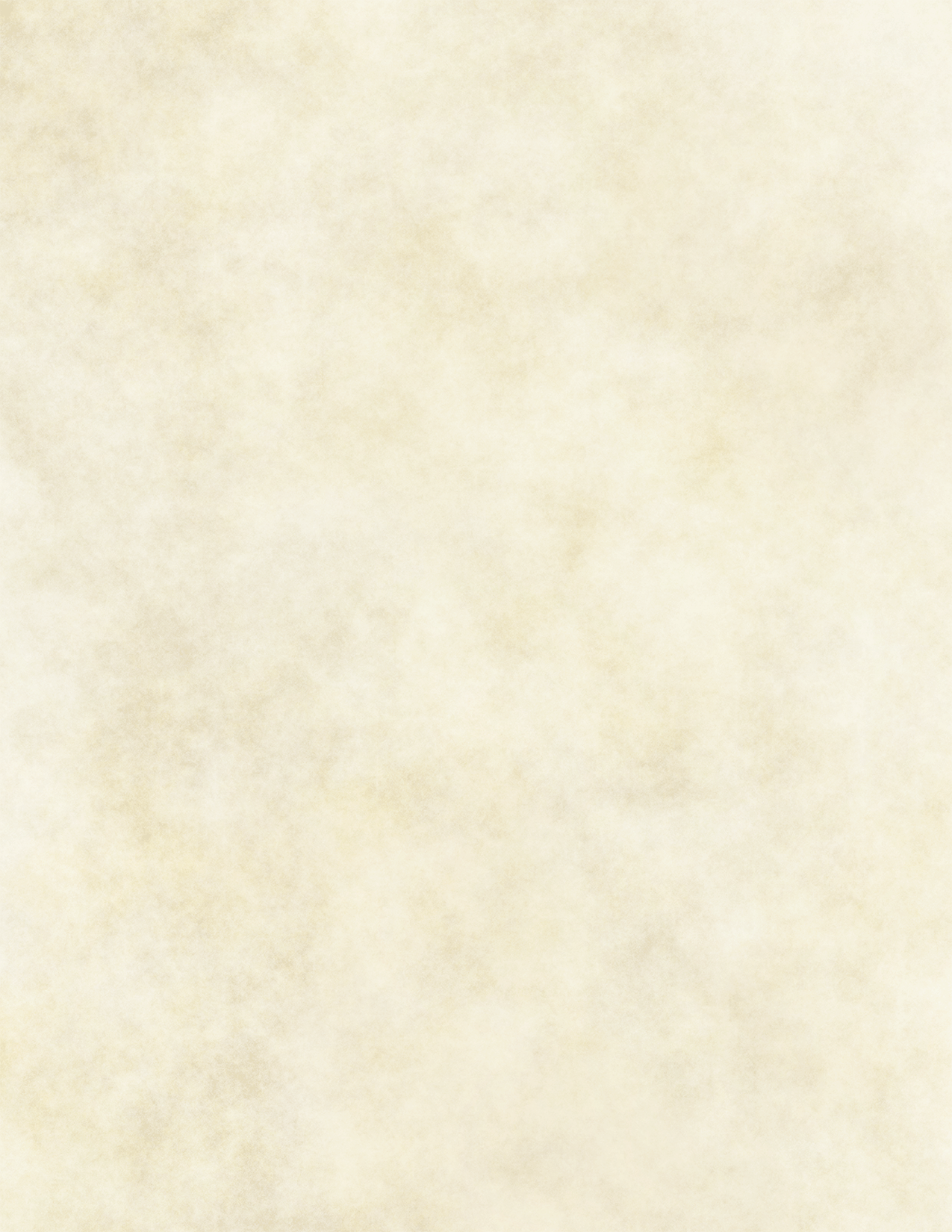
Drunkard
Every village, town, and city has one, whether the retired soldier who drinks away their bad experiences, or an unlucky individual who has turned to drinks to numb their pain, there is often more than what you see to them.
Knowledge in Words. Though often disregarded, there are pearls of wisdom to be found amongst the ramblings of the drunkard. Whether information from before their turn to alcohol, or experience gained from their life, someone with the patience to try might often find reward from giving the drunkard some company.
Nothing to Lose. A drunkard can be a fearsome foe. With a belly full of booze, the drunkard can withstand a great deal of punishment, the nerves dulled, their movements unpredictable, and their fists clenched.
No stranger to a bar room brawl, the drunkard is well versed in the broken bottle and the barstool as tools to express the exact depth of their anger, wielding them with as much fury and fervor as any legendary weapon.
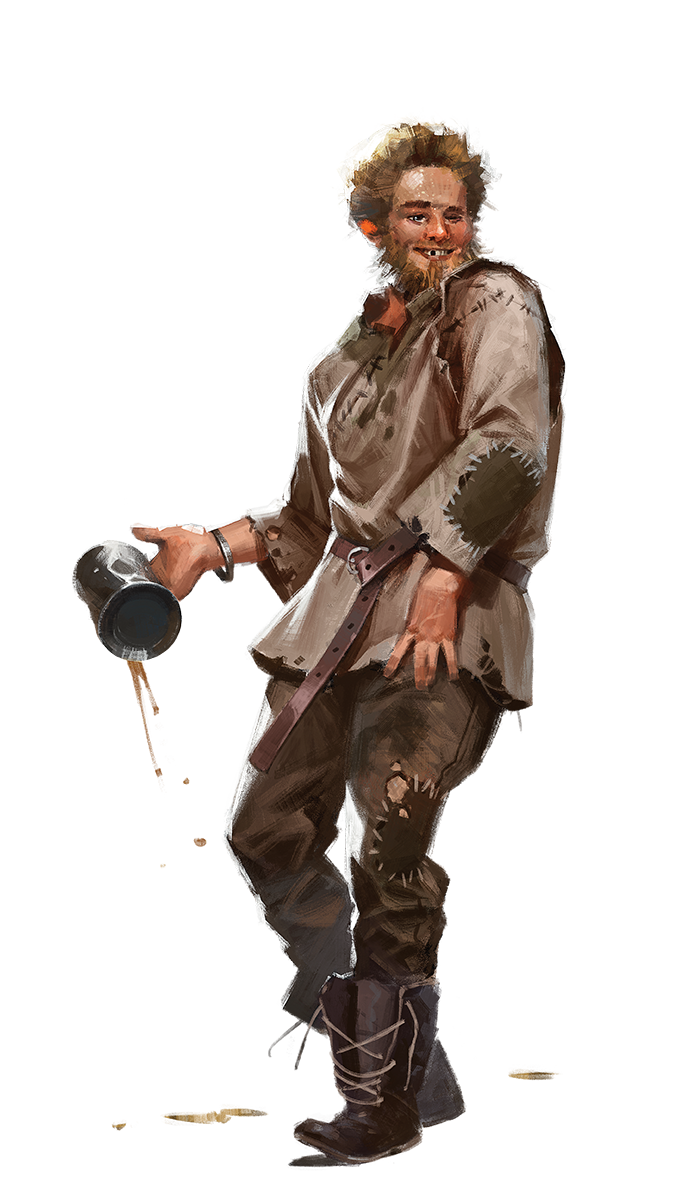
Drunkard
Medium humanoid (any), any alignment
- Armor Class 12
- Hit Points 50 (5d8 + 5)
- Speed 30 ft.
STR DEX CON INT WIS CHA 18 (+4) 14 (+2) 17 (+3) 11 (+0) 15 (+2) 11 (+0)
- Saving Throws Con +5
- Skills Athletics +5, History +2
- Damage Resistances bludgeoning from nonmagical weapons
- Senses passive perception 11
- Languages Common (+1 other)
- Challenge 3 (700 XP)
Rampage. When the drunkard reduces a creature to 0 hit points with a melee attack on its turn, the drunkard can take a bonus action to move up to half its speed and make an unarmed strike.
Solid Constitution. The drunkard has advantage on Constitution saving throws.
Tavern brawler. When the drunkard hits a creature with an unarmed strike or improvised weapon, it can attempt to grapple the target as a bonus action. Additionally, the drunkard is proficient with improvised weapons.
Actions
Multiattack. The drunkard makes two unarmed strikes or improvised weapon attacks
Unarmed Strike Melee Weapon Attack: +5 to hit, reach 5 ft., one target. Hit: 6 (1d4 +4) bludgeoning damage.
Improvised Weapon. Melee or Ranged Weapon Attack: +5 to hit, reach 5 ft. or range 30/90 ft., one creature. Hit: 6 (1d4 + 4) bludgeoning, piercing, or slashing damage, depending on weapon.
The Lucky Drunk
On some very rare occasions, a few lucky enough drunks will find themselves unknowingly stumbling through a patch of fog down a street, and end up accidentally setting foot into the Misty Grove and - to their amazement - wandering into the "Swaying Doorstop." It is unclear whether or not Ricch himself allows this, or if the Tavern itself allows certain individuals to find their way there.
Green Knight of the Woods
Clad in emerald green plate mail and a cloak woven from leaves, this mysterious knight wields a mighty battle axe. A shield decorated with greenery is strapped to his arm. .
Fey Champions. Green knights serve the Fey Lords and Ladies, acting as their champions and protecting those ancient forests where the borders between the Material Plane and the lands of the fey are thin. They are creatures of honor, and they are sometimes sent by a fey noble to test the integrity and honesty of a mortal knight by challenging the mortal to a duel or other contest. Beneath their plate armor, green knights appear as heavily built humanoids with a greenish tinge to their skin.
Forest Hideaways. Green knights make their homes in “Green Chapels” deep in the woods. These places are sometimes ruined churches or keeps overgrown with moss, vines and other foliage, or hidden forest gorges guarded by other fey creatures. Green knights often ride majestic green-skinned, fey warhorses into battle.
Green Knight of the Woods
Medium fey, lawful neutral
- Armor Class 20 (plate, shield)
- Hit Points 80 (12d8 + 24)
- Speed 30 ft.
STR DEX CON INT WIS CHA 18 (+4) 10 (+0) 14 (+2) 10 (+0) 12 (+1) 16 (+3)
- Saving Throws Dex +3, Con +5
- Skills Athletics +7, Intimidation +6, Survival +4
- Damage Resistances bludgeoning, piercing, and slashing from nonmagical attacks not made with silver
- Condition Immunities charmed, frightened
- Senses darkvision 60 ft., passive Perception 11
- Languages Common, Elvish, Sylvan, Druidic
- Challenge 6 (2,300 XP)
Headsman’s Woe. If the green knight’s head is severed by a vorpal weapon or by other means, magical vines sprout from its neck and the head reattaches by the start of the green knight’s next turn, preventing the green knight from dying from the loss of its head.
Knight’s Challenge (3/Day). As a bonus action, the green knight targets one creature that it can see within 30 feet and issues a challenge. If the target can see the green knight,
it must succeed on a DC 14 Wisdom saving throw or become magically compelled to engage the green knight in melee combat for 1 minute, or until the knight challenges a new opponent. The target can repeat the saving throw at the end of each of its turns, ending the effect on itself on a success. On its turn, the affected creature must move towards the green knight and make a melee attack against the green knight.
Magic Resistance. The green knight has advantage on saving throws against spells and other magical effects.
Fey-Minded. The green knight can communicate with beasts and plants as if they shared a language.
Actions
Multiattack. The green knight makes two attacks: one with its battle axe and one with its shield bash.
Battle Axe. Melee Weapon Attack: +7 to hit, reach 5 ft., one target. Hit: 8 (1d8 + 4) slashing damage, or 9 (1d10 + 4) slashing damage if used with two hands.
Shield Bash. Melee Weapon Attack: +7 to hit, reach 5 ft., one target. Hit: 7 (1d6 + 4) bludgeoning damage and the target is grappled (escape DC 15). Until this grapple ends, the target is restrained by magical vines springing forth from the green knight’s shield, and the green knight can’t make shield bash attacks against other targets.
Javelin. Melee or Ranged Weapon Attack: +7 to hit, reach 5 ft. or range 30/120 ft., one target. Hit: 7 (1d6 + 4) piercing damage
Reactions
Knight’s Rebuke. When the green knight is hit by a melee attack from a creature it has successfully challenged, it can make one battle axe attack with advantage against the attacker.


Hoard Golem
A hoard golem is a pile of gold, jewelry, and weapons that can rise on its own like a tidal wave or titan of riches, with a cold and determined face. A hoard golem can crash down with the weight of a fortune, flattening everything in its path.
Dragon Fears Made Real. The hoard golems were born from the paranoia of dragons. Despite their great physical and intellectual power, dragons are always suspicious of any creature willing to work for them. The first hoard golem was created when a dragon realized that there could be no guardian more trustworthy with its hoard than the hoard itself. Since then, the secret of hoard golem construction has emerged, and rich nobles have followed suit, enchanting their wealth to defend itself from thieves.
Patient Homebodies. As constructs, hoard golems are mindless, lying in wait for anyone other than their creator to come within striking distance. In the case of evil dragons, this may include the wyrmlings of dragon parents looking to establish dominance in the family. Hoard golems fight to the death, but they rarely leave the rooms they inhabit for fear that clever treasure hunters might trick the hoard into walking itself right out of the owner’s den.
Silent and Wealthy. Hoard golems cannot speak. A hoard golem is 25 feet tall and weighs 20,000 lb. A hoard golem’s body is composed of items—copper, silver, gold, works of art, armor, weapons, and magical items—worth at least 5,000 gp.
Construct Nature. A golem doesn’t require air, food, drink, or sleep.
Hoard Golem
Huge construct, unaligned
- Armor Class 18 (natural armor)
- Hit Points 161 (14d12 + 70)
- Speed 40 ft.
STR DEX CON INT WIS CHA 22(+6) 15(+2) 20(+5) 3(–4) 11(+0) 1(–5)
- Saving Throws Con +9
- Skills Athletics +10, Perception +4
- Damage Immunities poison, psychic; bludgeoning, piercing, and slashing from nonmagical weapons that aren’t adamantine
- Condition Immunities charmed, exhausted, frightened, paralyzed, petrified, poisoned
- Senses darkvision 120 ft., passive Perception 14
- Languages understands the language of its creator but can’t speak
- Challenge 12 (8,400 XP)
Strike with Awe. Creatures within 120 feet of an immobile hoard golem suffer disadvantage on Wisdom (Perception) checks. A creature’s sheer glee on discovering a vast hoard of treasure distracts it from its surroundings.
Immutable Form. The golem is immune to any spell or effect that would alter its form.
Magic Resistance. The golem has advantage on saving throws against spells and other magical effects.
Magic Weapons. The golem’s weapon attacks are magical.
Actions
Multiattack. The hoard golem makes two slam attacks.
Slam. Melee Weapon Attack: +10 to hit, reach 10 ft., one target. Hit: 39 (6d10 + 6) bludgeoning, piercing, or slashing damage.
Thieving Whirlwind (Recharge 5–6). The hoard golem transforms into a 20-foot radius whirlwind of the treasures of which it is composed. In this form, it has immunity to all slashing and piercing damage. As a whirlwind, it can enter other creatures’ spaces and stop there. Every creature in a space the whirlwind occupies must make a DC 17 Dexterity saving throw. On a failure, a target takes 40 (6d10 + 7) bludgeoning damage and the whirlwind removes the most valuable visible item on the target, including wielded items, but not armor. If the saving throw is successful, the target takes half the bludgeoning damage and retains all possessions. The golem can remain in whirlwind form for up to 3 rounds, or it can transform back to its normal form on any of its turns as a bonus action.


Keg Golem
An ornate keg with a stern dwarven face, arms, and legs walks about the tavern, dispensing drink to any and all. Dwarven runes adorn the metal of the keg golem, powering it. Some dwarves use the golems to promote their favorite drinking spots.
Creation. Keg golems are created when dwarven rune masters acquire a keg of their strongest ale and carve magical runes into it. The creator then forges a replica of its own face onto the front of the keg. The process requires two weeks of forging and runic inscription. The runes glow with the arcane energy of the creator, ranging from faint blues to dark reds. Many other races soon caught on to the methods to create these useful bar constructs - reducing the necessary labor to keep a tavern open.
Mobile Guardian. Many Tavernkeeps create these constructs to use as a mobile source of ale on long journeys. When its master is threatened, the golem helps to incapacitate the adversary with its powerful ale blast. If lost, stolen, or bartered for, a keg golem can be used for promotional purposes or for guarding a tavern.
Construct Nature. A golem doesn’t require air, food, drink, or sleep.
Keg Golem
Medium construct, unaligned
- Armor Class 11 (natural armor)
- Hit Points 45 (6d8 + 18)
- Speed 30 ft.
STR DEX CON INT WIS CHA 16 (+3) 10 (+0) 16 (+3) 8 (–1) 7 (–2) 3 (–4)
- Damage Resistances bludgeoning, piercing, and slashing from nonmagical attacks not made with adamantine
- Damage Immunities poison, psychic
- Condition Immunities charmed, exhaustion, frightened, paralyzed, petrified, poisoned
- Senses darkvision 60 ft., passive Perception 8
- Languages understands the languages of its creator but can’t speak
- Challenge 3 (700 XP)
Empty Keg. A keg golem holds 20 gallons of ale. If it runs out of ale or empties itself from ale blast, the golem’s speed is reduced to 0 and it has disadvantage on all attack rolls until it is refilled with at least 1 gallon of ale.
Immutable Form. The keg golem is immune to any spell or effect that would alter its form.
Magic Resistance. The keg golem has advantage on saving throws against spells and other magical effects.
Rolling Charge. If the keg golem moves at least 15 feet straight toward a creature and then hits it with a slam attack on the same turn, that target must succeed on a DC 13 Dexterity saving throw or be knocked prone. If the target is prone, the keg golem can make one slam attack against it as a bonus action.
Actions
Slam. Melee Weapon Attack: +3 to hit, reach 5 ft., one target. Hit: 6 (1d6 + 3) bludgeoning damage.
Ale Blast (Recharge 5-6). The keg golem shoots a 1 gallon jet of ale in a 15-foot line that is 5 feet wide. Each creature in that line must make a DC 13 Constitution saving throw. On a failure, a target takes 9 (2d8) poison damage, gains a level of drunkenness, and is poisoned for 1 minute. On a success, a target takes half the damage and isn’t poisoned. A poisoned creature can repeat the saving throw at the end of each of its turns, ending the effect on itself on a success.
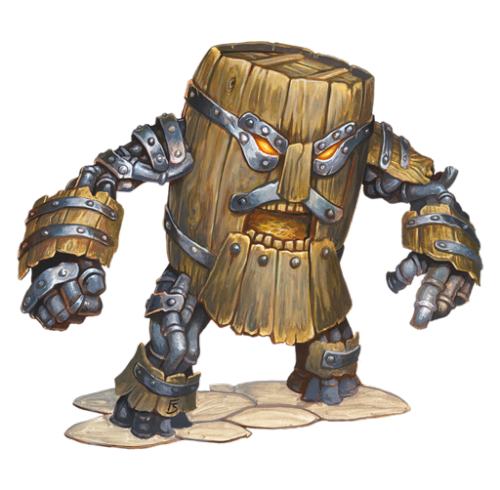
Leprechaun
A small man dressed in vibrant green stood upon the stone, and he claimed in a rhyming limerick that he had just the treasure i was searching for.
Curious Origins. For as long as the Feywild has existed - and perhaps even further than it's beginning - leprechauns have existed to both the mirth and mire of many a creature. The origin of these tricksters has never been completely uncovered, and perhaps they wish it to remain as such.
Treasures at the End of the Rainbow. The visage of a Rainbow is almost always followed by the presence of a Leprechaun. Legends have always told of their priceless sums of gold and gems at the end of the rainbow, but some sages and scholars have theorized that the leprechauns are not always guarding treasures of gold or gems, but that sometimes they lead the way to Artifacts of power, or stores of hidden knowledge, for all these things are deeply valuable in their own ways.
Leprechaun
Small Fey, chaotic neutral
- Armor Class 17 (natural armor)
- Hit Points 180 (16d8 + 70)
- Speed 30 ft., fly 40 ft. (hover)
STR DEX CON INT WIS CHA 13 (+2) 12 (+1) 23 (+6) 19 (+4) 19 (+4) 23 (+6)
- Saving Throws Con +7, Int +5, Wis +5, Cha +7
- Skills Perception +10, stealth +9
- Damage Resistances slashing, piercing, bludgeoning from nonmagical weapons
- Condition Immunities charmed, frightened, poisoned
- Senses blindsight 30 ft., darkvision 60ft., passive Perception 14
- Languages Common, Elvish, Sylvan, Druidic, Primordial
- Challenge 11 (7,200 XP)
Leprechaun’s Luck. Leprechauns add both their Dexterity and Charisma modifiers to their Armor Class.
Magic Weapons. The leprechaun's weapon attacks are magical.
Mystical Demise. If the leprechaun dies, its body disintegrates into a burst of clovers and leaves, leaving behind only the equipment the leprechaun was wearing or carrying.
Innate Spellcasting. The leprechaun’s innate spellcasting ability is Charisma (spell save DC 16, +6 to hit with spell attacks.) The leprechaun can cast the following spells, requiring no material components.
At will: detect evil & good, detect magic, friends, mending, minor illusion, purify food and drink, vicious mockery
3/day each: blur, calm emotions, charm person, cure wounds, heroism, legend lore, mislead, otto's Irresistible Dance, sleep, suggestion, teleport
1/day each: dominate person, find the path, invisibility, plane shift
1/year: Wish
Magic Resistance. The leprechaun has advantage on saving throws against spells and other magical effects.
Actions
Multiattack. The leprechaun makes two shillelegh attacks.
Shillelegh. Melee Weapon Attack: +10 to hit, reach 5 ft., one target. Hit: 13 (1d8 + 9) bludgeoning damage, or 16 (2d8 + 9) bludgeoning damage if used with two hands.
Legendary Actions
The leprechaun can take one legendary action. It can take only one legendary action at a time and only at the end of another creature's turn. The leprechaun regains spent legendary actions at the start of its turn.
Conjure Rainbow. The leprechaun magically creates a rainbow in the skies above in size of its choosing. Each creature that is hostile to the leprechaun that can see the rainbow within 300 feet must succeed on a DC 16 Constitution saving throw taking 20 psychic damage and become stunned until their next turn on a failed throw or half as much damage on a successful one and not stunned. Creatures that take damage from the rainbow are immune to this effect for 1 day.
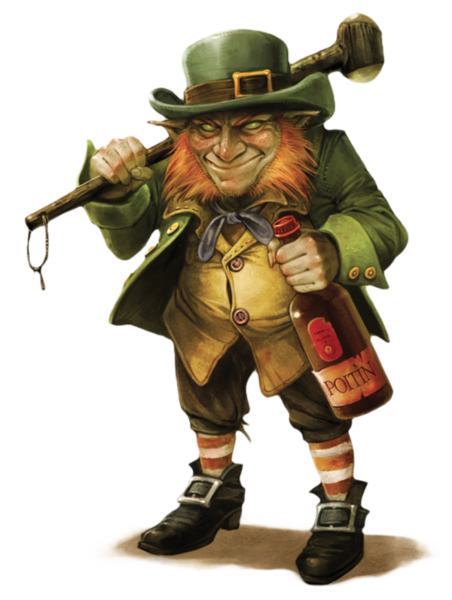
Rum Gremlins
Found in taverns, docks and ships, these small, pot-bellied monstrosities have bright green hair, orange eyes, and a drunken stare. They are only a foot tall and weigh ten pounds, but they are renowned for causing mischief far beyond their tiny size. Their mouths are filled with razor-sharp teeth.
Drunken Aura. Rum gremlins make their homes in bars near the docks of seaside towns and some are known to stow away on ships. Each rum gremlin radiates a magic aura causing drunkenness affecting any creatures in the area. Those affected find it difficult to stay on their feet and may become sick from the effect.
Sailor Victims. The little horrors often create distracting sounds and small traps. Rum gremlins prey on sailors and dockworkers, working in groups to swarm affected victims who they drag into their lairs below docks or in the holds of ships. They also take great delight in the collateral damage their magic can wreak, frequently sparking accusations and quarrels in places they inhabit before picking off isolated victims.
Rat Friends. Rum gremlins are often found with rat swarms or mice they have trained to help protect their nests. The sound of bells drives rum gremlins into a rage and they will go to great lengths to destroy the source of their torment.
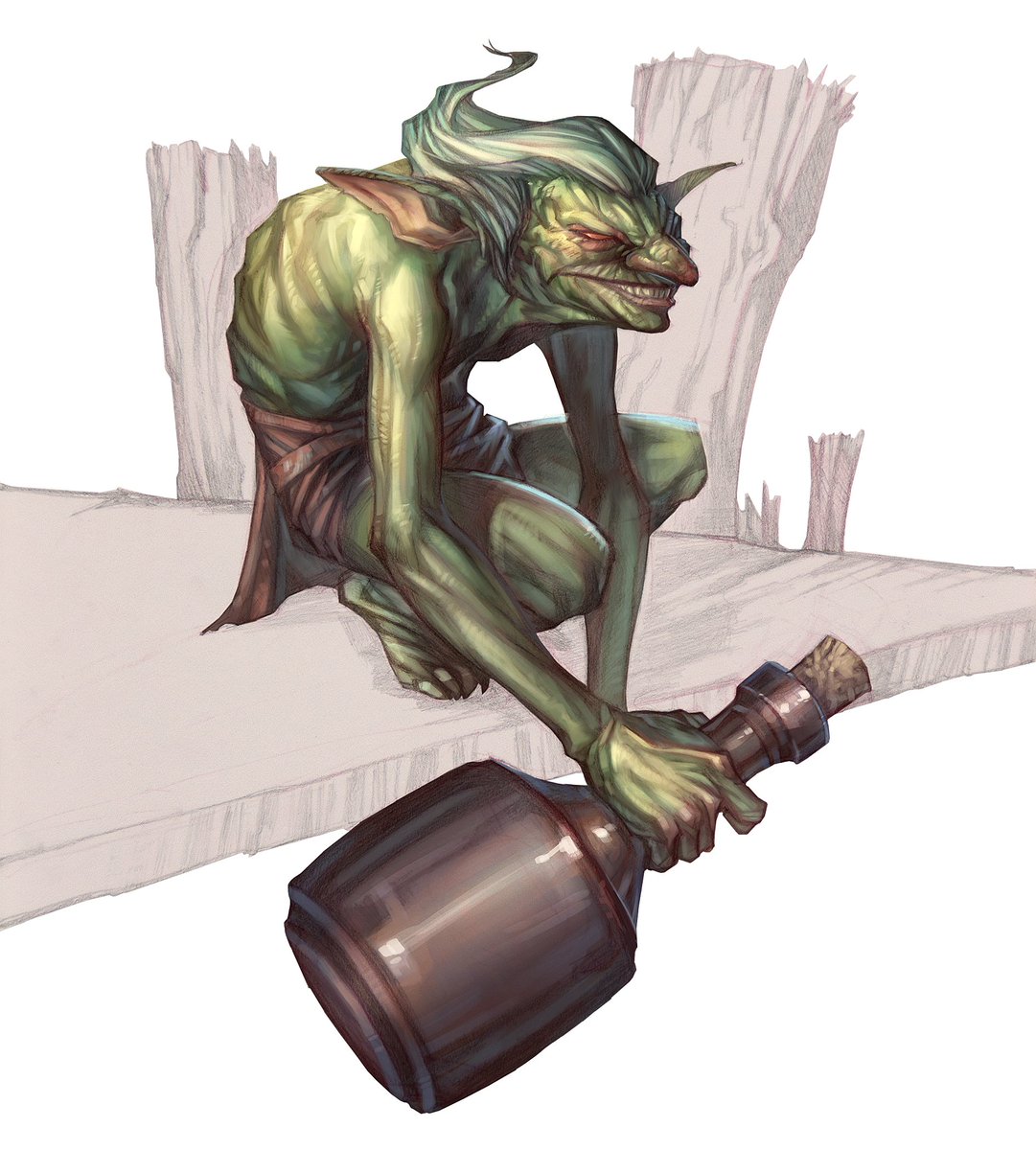

Rum Gremlin
Tiny fey, chaotic evil
- Armor Class 13
- Hit Points 22 (5d4 +10)
- Speed 20 ft., climb 10 ft., swim 10 ft.
STR DEX CON INT WIS CHA 10(+0) 16(+3) 14(+2) 12(+1) 9(–1) 12(+1)
- Skills Stealth +5
- Condition Immunities poisoned
- Senses darkvision 120 ft., passive Perception 10
- Languages Common
- Challenge 1/2 (100 XP)
Innate Spellcasting. The gremlin’s innate spellcasting ability is Charisma (spell save DC 11). It can innately cast the following spells, requiring no material components:
At Will: prestidigitation
3/day: hex
Magic Resistance. The gremlin has advantage on saving throws against spells and other magical effects.
Actions
Multiattack. The goblin makes one claw attack and one bite attack.
Bite. Melee Weapon Attack: +5 to hit, range 5 ft., one target. Hit: 5 (1d4 + 3) piercing damage.
Claws. Melee Weapon Attack: +5 to hit, range 5 ft., one target. Hit: 6 (1d6 + 3) slashing damage.
Aura of Drunkenness. A rum gremlin radiates an aura of drunkenness to a radius of 20 feet. Every creature that starts its turn in the aura must make a successful DC 12 Constitution saving throw against poison or gain one level of drunkenness and be poisoned for one hour. Creatures that have drunk any alcohol during the previous hour have disadvantage on the saving throw.
Ricch Padicus, Fey Lord of Luck & Debauchery
A regally dressed figure sits against a tree in a silvery mist, surrounded by a golden noon light. He looks up from under his hat and smiles, he welcomes you to sit and stay a while.
Ricch, the Lord of luck and debauchery, resembles a man sized leprechaun, dressed extravagantly and poised in his mannerisms and dealings. He is the only Feylord who decides that both the Seelie and Unseelie courts are absolutely uneeded in their jurisdictions, and thus, works outside their rulings - adhering instead to the idea that the Feywild is a mercurial and living thing that changes - and therefore the fey should inhabit that ever-changing nature.
Master of Noon. Ricch is the only Feylord that owns a "court" of his own, deeming his domain to be a place of absolute neutrality and celebration amongst the constantly at-odds Dawn and Dusk courts. He welcomes all those into his domain that abide by the simple rule to not involve the courts upon his domain - lest they feel his wrath.
Keeper of the Doorstop. Ricch is the entity responsible for the upkeep and the tending of "The Swaying Doorstop" tavern which resides inside the Misty Grove of the feywild. This tavern and grove are said to have a mind of its own and have the capabilities to traverse the planes with ease. Allowing many a patron from across the multiverse to be found at its doorstep.
Ricch's Lair
Ricch lives in the Misty Grove, an eternally fog-bound grove, filled with trees that are themselves saplings of Yggdrasil. The Tavern - "The Swaying Doorstop" - is made of warped and bent branches and roots of these trees, seemingly all woven together into an impenetrable mass.
The Tavern itself is known to have 4 distinct levels: The top floor, the bar level, the anteroom, and the cellar - but some particularly greedy adventurers, in attempts to find Ricch's fabled treasures, have come to find that the tavern will grow or even create new levels to accommodate more space, sometimes having creatures lose themselves in its ever-expanding halls which could lead to other planes of existence.
LAIR ACTIONS
On initiative count 20 (losing initiative ties), Ricch takes a lair action to cause one of the following effects; he can’t use the same effect two rounds in a row:
- Ricch’s voice booms in a haughty-yet-wrathful laugh, and causes the ground in a 60-foot radius to tremble and shake. Any creatures in the affected area must succeed on a DC 15 Strength saving throw or suffer 8 (2d6) thunder damage and 8 (2d6) bludgeoning damage and fall prone on a fail, or half damage and no prone on a success. The ground continues to tremble until initiative count 20 on the following round, during which time the area is difficult terrain.
-
Ricch can cause up to 3 walls within the lair to become hallways, rooms, or an equal number of doors to appear on those walls where there previously were none. He may also change or negate the furnishings and substances within these areas at the use of this ability. (ie: causing a bar to appear, a table and chairs to materialize, a door to appear that leads to an adjacent room, the barrels in a room to become tables, etc) Ricch can forcibly shunt a creature out of his Domain this way - a targeted creature must succeed on a DC 20 Constitution saving throw or suffer (5d6) force damage and be shunted outside the tavern, on a success they take no damage and remain in the closest unoccupied space
-
Ricch summons a swirling cloud of gold dust to coalesce in a 10-foot-radius sphere centered on Him. Ricch’s AC increases by 2, the cloud spreads around corners, and each creature in the cloud must succeed on a DC 15 Constitution saving throw or take 20 (4d4 + 10) Psychic damage on a failure and become petrified as gold for 1 minute, or Half damage on a success and no petrification – you also become immune to the gold petrification for 24 hrs.

REGIONAL EFFECTS
The Misty Grove and the Tavern: “The Swaying Doorstop” is warped by Ricch’s magic, which creates one or more of the following effects:
-
Within the Grove or Tavern, anyone taking a short rest instead feels the effects of a long rest.
-
The Grove and Tavern will randomly warp into different planes throughout the multiverse, but Ricch can choose to warp to particular locales, as well. When not decided, the tavern will warp similar to an "Amulet of the Planes."
-
Emotions within Ricch’s Tavern run high and the Truth flows freely. People are under the effects of a "Zone of Truth", and arguments quickly descend into physical scuffles and enjoyable get-togethers are likely to become raucous carousing or even brawls.
If Ricch dies, conditions in the surrounding area begin to collapse, and within 5 rounds, the area completely collapses into the Astral Plane, dealing (15d10) Force and (15d10) Psychic Damage to all creatures still within the Tavern.
Ricch, Lord of Luck & Debauchery
Medium fey, neutral
- Armor Class 25 (27 with gold dust cloud)
- Hit Points 450 (30d10 + 125)
- Speed 60 ft (70 ft + Disengage, after "Intxoicated Frenzy")., fly 40 ft. (hover)
STR DEX CON INT WIS CHA 25(+7) 20(+5) 25(+7) 20(+5) 20(+5) 25(+7)
- Saving Throws Str +12, Dex +10, Con +12, Int +10, Wis +10, Cha +12
- Skills Acrobatics +10, Athletics +12, Medicine +10, Perception +10, Persuasion +12, Performance +10, Stealth +10
- Tools Alchemist supplies, Brewer’s supplies, Cook’s Utensils
- Damage Resistances Acid, Cold, Fire, Lightning, Poison, Thunder; Bludgeoning, piercing, and slashing damage from magical weapons
- Damage Immunities Bludgeoning, piercing, and slashing damage from nonmagical weapons
- Condition Immunities Charmed, Diseased, Frightened, Stunned, Poisoned.
- Senses Truesight 30 ft., Blindsight 60 ft., Superior Darkvision 120 ft., passive perception 20
- Languages All, Telepathy 60 ft.
- Challenge 28 (120,000 XP)
Leprechaun’s Luck. Ricch adds both his Dexterity and Charisma modifiers to their Armor Class.
Magic Weapons. Ricch's weapon attacks are magical.
Leaping Feet. Ricch can stand up by spending 5 ft of movement, rather than half his speed.
Grandmaster Brewer. Ricch has a +10 bonus on ability checks to brew drinks, potions, and poisons, has advantage on all rolls to make them, and can’t be intoxicated unless he chooses to be.
Eternal Body. Ricch does not need to Eat, Drink, Sleep, or Breathe, but can if he chooses to. Ricch does not age.
Magic Resistance. Ricch has advantage on saving throws against spells and other magical effects.
Drunken Chance. (1/Day) When Ricch makes an ability check, an attack roll, or a saving throw and has disadvantage on the roll, he can choose to negate the Disadvantage instead.
Legendary Resistance (3/Day). If Ricch fails a saving throw, he can choose to succeed instead.
Innate Spellcasting. Ricch’s spellcasting ability is Charisma (spell save DC 20, +12 to hit with spell attacks). Ricch can innately cast the following spells, requiring no material components.
- (At Will): detect evil & good, detect magic, dispel evil & good, faerie fire, fog cloud, friends, jump, mending, minor illusion, prestidigitation, protection from evil & good, purify food and drink, vicious mockery (5d4 psychic)
- 1st level (5 slots): charm person, cure wounds, disguise self, heroism, sleep, tasha’s hideous laughter
- 2nd level (4 slots): blur, calm emotions, heat metal, invisibility, knock, suggestion
- 3rd level (4 slots): haste, major Image, nondetection, remove curse, slow
- 4th level (4 slots): banishment, compulsion, confusion, freedom of movement, leomund's secret chest
- 5th level (3 slots): animate objects, geas, creation, dominate person, modify memory
- 6th level (3 slots): conjure fey, find the path, guards and wards, otto’s irresistible dance
- 7th level (3 slots): plane shift, prismatic spray, resurrection, teleport
- 8th level (3 slots): glibness, power word stun, sunburst
- 9th level (2 slots): prismatic wall, wish
- 10th level (1 slot): hope
Actions
Multiattack. Ricch makes four attacks: 4 gilded staff strikes or unarmed strikes, or 1 Belch and 3 unarmed/staff strikes.
Ancient Gilded Staff: Melee Weapon Attack: +18 to hit, reach 10 ft., one target. Hit: 30 (2d6 + 13) bludgeoning damage, and (3d6) Aetherion damage.
Unarmed Strike: Melee Weapon Attack: +15 to hit, reach 5 ft., one target. Hit: 25 (3d6 + 10) bludgeoning damage.
Belch. (Recharge 5-6). Ricch belches in a 60-foot cone, all creatures in that area must make a DC 20 Constitution saving throw, or become stunned for 1 minute. On a successful save, the creature is immune to his Belch for 24 hours.
Intoxicated Frenzy. (Recharge 6). Ricch spends his entire turn in a drunken rage. Ricch now makes 8 attacks against any number of creatures within 10 ft. of him. He is then under the effect of Disengage and can move 70 ft immediately afterwards.
Reactions
Block. Ricch adds 3 to his AC against one single melee attack that would hit him. Ricch does not need to see the attacker to block them – due to blindsight.
Redirect. When a Creature misses Ricch with an melee attack, he can use a reaction to cause that attack to hit another creature within 5 ft. of him.
Deflect Missile. Ricch uses his reaction to deflect or catch a missile when he is hit by a ranged weapon attack, he reduces the damage of the attack by (1d20 + 10). If he reduces the damage to 0, he catches the missile, and as part of the same reaction, he makes a ranged attack against any creature within 90 ft.
Legendary Actions
Ricch can take 3 legendary actions, choosing from the options below. Only one legendary action option can be used at a time and only at the end of another creature's turn. Ricch regains spent legendary actions at the start of its turn
Misty Leap Ricch teleports to an unoccupied space within 60ft.
Quick-Strike. Ricch makes a single unarmed melee attack against a creature within 5 ft.
Conjure Rainbow. Ricch magically creates a rainbow in the skies above in a size of his choosing. Each creature that is hostile to the leprechaun that can see the rainbow within 500 feet must succeed on a DC 20 Constitution saving throw taking 35 psychic damage and become stunned until their next turn on a failed throw or half as much damage on a successful one and not stunned. Creatures that take damage from the rainbow are immune to this effect for 12 hours.
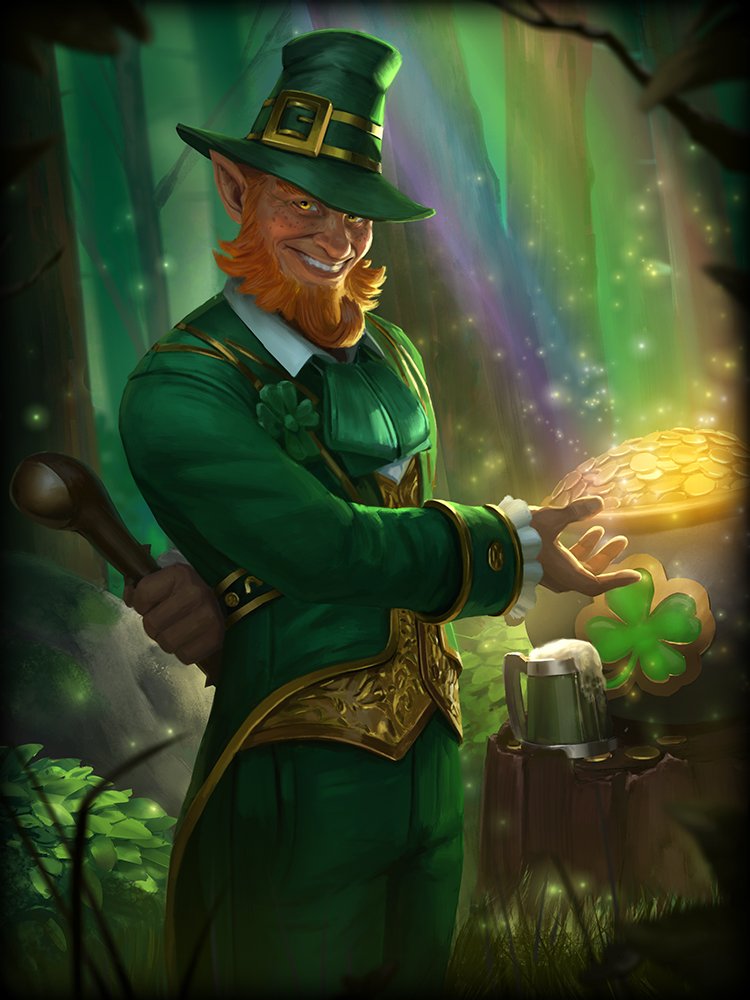

The Treasures of Ricch
Ricch is thought to be the primal leprechaun, and as a result, many believe that he has the largest sum of treasures than any other leprechaun combined.
It is rumored that his hoard is hidden in one of the separated areas of the tavern - extradimensionally cut off - but possible to get through only through Ricch's guidance, or attempting to navigate the depths of the tavern unattended.
The spoils of his treasure larder are rumored to contain a multitude of ancient artifacts, currency, gemstones, art pieces, and magical objects. His hoard is almost always guarded by a Hoard Golem.
Unique Treasures
If Ricch is either in "The Swaying Doorstop" or the Misty Grove, As an Action, roll a d8, he can reach into an extradimensional space and access his hidden hoard of treasures, taking one object of his choice from his treasures below:
- A satchel of 5,000 gold
- A pouch of gemstones worth 2,500 in total
- Alchemy Jug (filled with booze or another substance)
- Bag of Beans (10 beans)
- Unstable Wand of Wonder (rolls on wand table & wild magic table)
- Dimensional Shackles
- Iron Flask (Solar or Balor - flip a coin)
- Luck Blade (2 charges)
If Ricch is outside of his lair areas, he can access only the above items through the use of his "leomunds secret chest".
